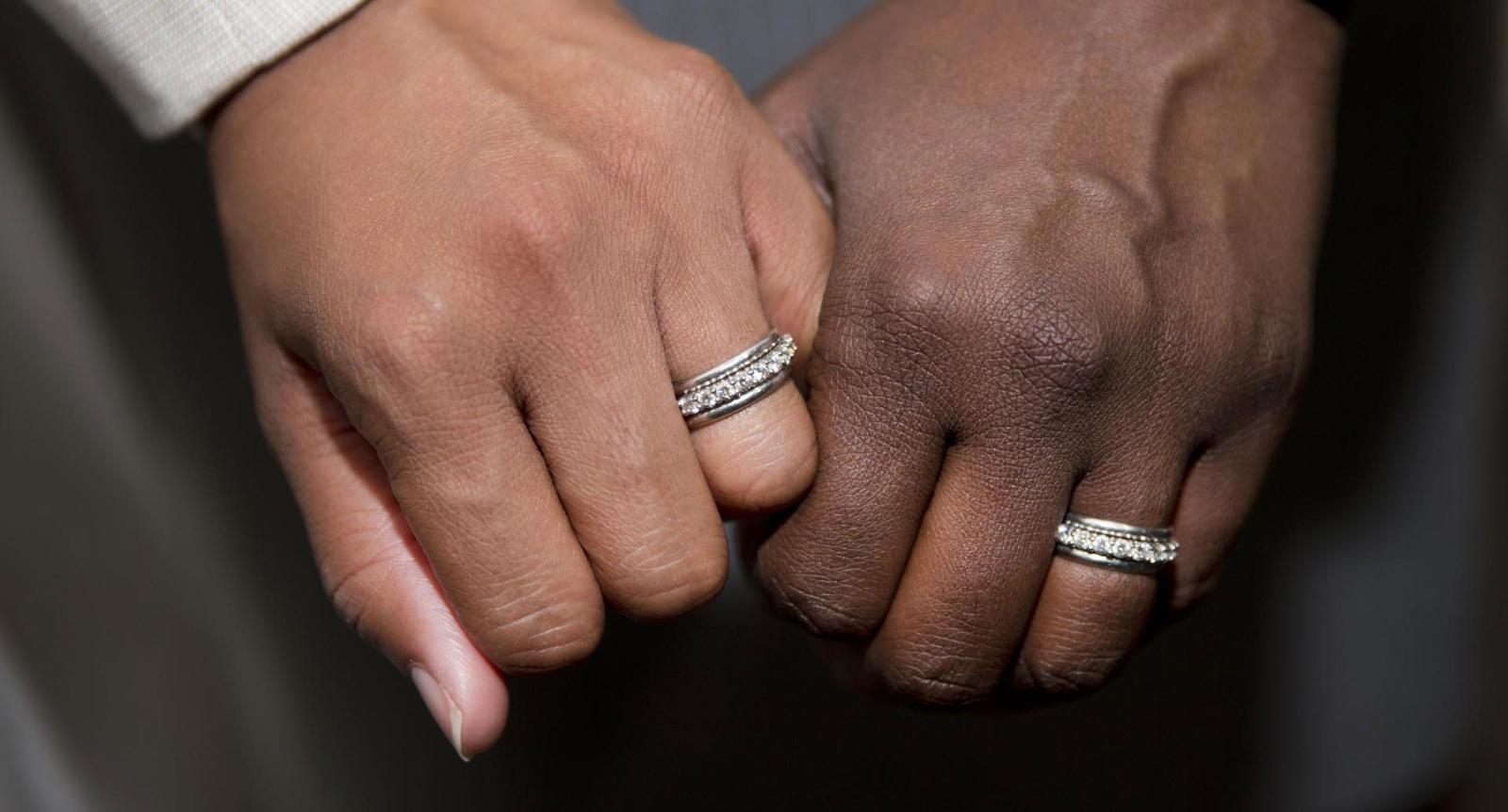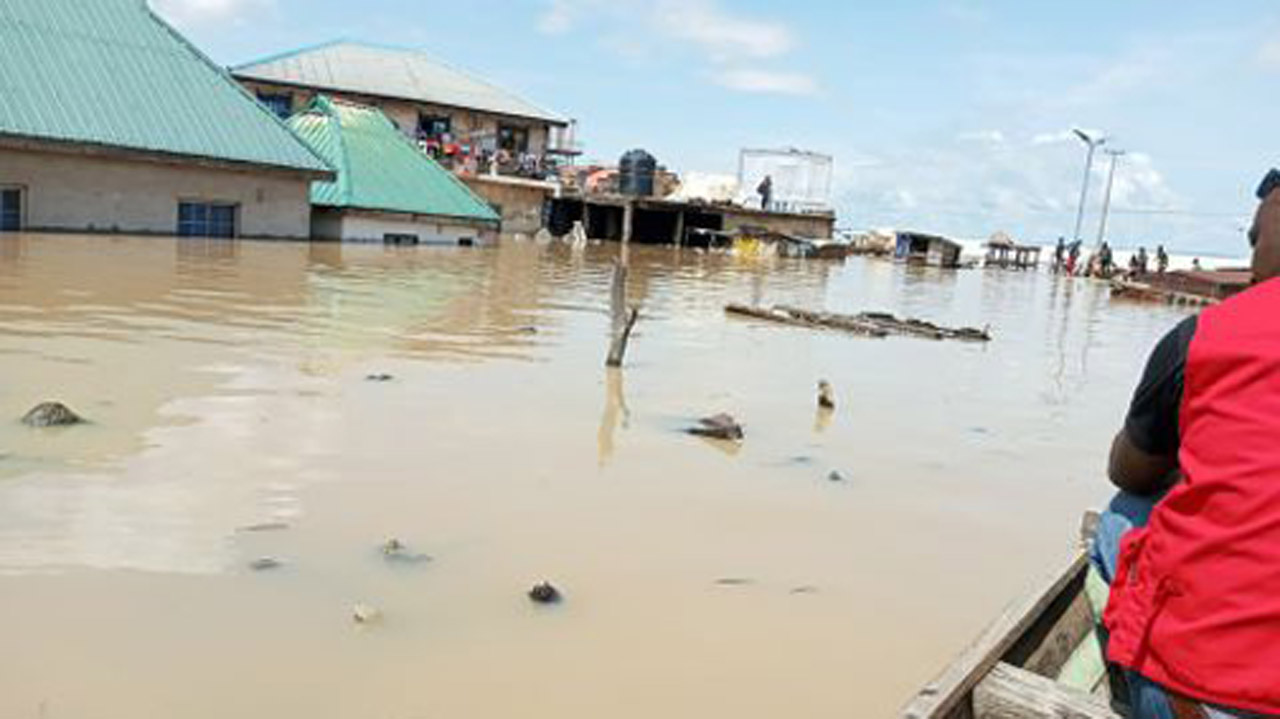OPINION
Why Youth Entrepreneurship is a Pathway to Africa’s Development

By Mary Ene
The greatest asset of any nation is its educated and empowered youth. Sadly, in Africa young people continue to face a number of challenges, including high levels of unemployment.
Given that the youth are enthusiastic, curious, creative and innovative, empowering them to pursue their dreams will boost the economic growth of any nation.
However, to unlock this creativity, guidance and support are paramountYouth unemployment inhibits sustained economic growth and development especially in developing countries.
In the report on “Global Employment Trends for Youth” by the International Labor Organization (ILO) published in 2015, over 169 million working young people earn less than US$2 per day in developing countries.
Africa’s youth population is the youngest in the world and is expected to double within the next decade. This will pose a major problem in Africa if nothing drastic is done to tackle the high unemployment rate and its dire consequences.
That’s notwithstanding, the African Development Bank (AfDB), in its report, Jobs for the Youth in Africa (2016), predicted that 263 million young people will lack an economic stake in the system by 2025. The World Bank in its April 2022 “Update on Global Poverty and Inequality Platform” also states that sub-Saharan Africa accounts for 61.3% of the global poor population, that is, those that live on $1.90 per day.
Youth unemployment has contributed immensely to a rise in poverty, terrorism, insecurity, banditry, kidnappings, political thuggery, civil unrest, cyber-crime and many social vices we witness in Africa today. These challenges slow the pace of development and the achievement of the Sustainable Development Goals on the continent.
Entrepreneurship has been shown to be the only sustainable path to resolving this situation. Young people in Africa mostly operate within the micro to small business space and Entrepreneurship provides young people with the necessary skills and experiences to thrive economically and contribute to development of the continent.
However, to achieve this noble continental goal, they need to be groomed to acquire entrepreneurship skills to build and most importantly to scale their businesses across Africa, taking advantage of the consolidated over one-billion-persons market and beyond.
This is exactly the objective of the GAIN Entrepreneurship Masterclass by Grand Africa Initiative GAIN. The Master class, now in its second year, has been able to reach young Africans in thirteen countries.
To ensure an all- round practical entrepreneurship training, the 2021 edition focused on business ideation, design thinking, business modeling, pitching, business finance, investment, forecast, leadership, communication marketing etc and had facilitators drawn from across the globe.
Partners included ExxonMobil, TYSYS Capital Group, Vurin Group, Country Hill Attorneys & Solicitors, Strickland Services Limited, Nextzon Limited and Weltek Limited.
The success of this novel approach is already on display. Over the past six months, we have received testimonials on how the program has impacted the businesses of the pioneer participants. With feedback ranging from clarity of ideas, ideas conception, boosted confidence, actual startups, expansion, more revenue etc. It has been a harvest of positive testimonials from almost 95% of the pool.
One other critical component of the GAIN Entrepreneurship Masterclass was the “tool box” support provided by collaborating partners to the participants by way of IT starterpacks and/or business grants.
Clearly, with the high level of youth unemployment and underemployment, Africa is on the verge of a major developmental crises, the effects are already here with us-banditery, illegal migration, political thuggery, and terrorism. Prior to now, African youths who do not have the privilege of attending high-brow business schools on the continent and abroad have largely struggled, leading to a very high mortality rate of micro to small businesses led by young Africans.
GAIN identified this gap and launched the GAIN Entrepreneurship Masterclass solving the twin problems of lack of entrepreneurship knowledge and business support grant. The program is already showing a lot of promise and is growing into a major continent-wide pipeline for churning out properly groomed young African Entrepreneurs.
Grand Africa Initiative-GAIN is a pan-African non-governmental organization empowering the youth for success in education, employment, entrepreneurship and innovation through capacity building programs, mentorship and high-level annual youth summits.
With her fast-growing network of forward-thinking youths across Africa, GAIN’s programs are designed to empower and develop the youths. GAIN also partners with well-meaning individuals and organizations who share the same goals and objectives.
Ene writes from Abuja
OPINION
Bezos Wedding: When Will We Stop Applauding Power and Start Questioning It?

By Ebuka Ukoh
“We are nobodies. We have no money. Nothing. We’re just citizens who started organising—and we managed to move one of the most powerful people in the world out of the city.” —Tommaso Cacciari, No Space for Bezos.
It took me a lot to pick up my laptop and type. But it is easy to scroll through the news, get angry, and do absolutely nothing. But I know better now. Doing something—even a small thing—matters. For some, it will be to plant the seed.For others, it will be to water. The point is this: ordinary people still have power. They just need to know it and own it .
Last week, the streets of Venice reminded the world what people power looks like.
Protesters from groups like No Space for Bezos and Greenpeace Italy rallied against the lavish, hyper-exclusive wedding celebration of Jeff Bezos and Lauren Sanchez. The world’s third richest man planned to rent out historical landmarks, sail in on private yachts, and jam up Venice with celebrity guests and former U.S. Marines.The city was to become a backdrop for billionaire decadence. But the people said no.
From hanging protest banners across Venice’s canals to plastering the city with fake Bezos dollar bills, citizens organized, their message was clear: Venice is not for sale. And they won. The event was moved from the city center to a more remote location. The world’s elite retreated.
Compare this to Nigeria. If someone like Bezos were visiting Lagos or Abuja, we might declare a public holiday to welcome him. We just saw that happen. President Tinubu visited Benue State, where people were still reeling from a massacre, and the state declared a holiday, not to mourn the victims but to welcome a powerful man. This is what sycophancy looks like when it replaces sense.
We are quick to roll out red carpets for those with power, yet slow to resist those who abuse it. We silence our pain in favor of performance.
But what if, like the people of Venice, we pushed back?
In Nigeria, we are dealing with insecurity in Benue, oil spills in the Niger Delta, gentrification in Lagos, and crippling hardship from fuel subsidy removals. These aren’t random misfortunes. They are structural betrayals. Yet, we often act like we are powerless.
We are not .Organizing doesn’t always mean marching. It can mean: Forming community safety patrols when the state fails to protect.
Creating coalitions to monitor oil spill cleanup promises. Mobilizing digitally to resist land grabs.Voting as a bloc to unseat non-performing leaders.
The End SARS movement proved this. So did Bring Back Our Girls. Otoge in Kwara shifted political dynamics. The fuel subsidy protests, from Occupy Nigeria in 2012 to the current resistance against hardship, all show that organized voices can challenge the status quo.
But protest doesn’t need to trend on Twitter to be effective. It just needs to persist. As Tommaso Cacciari put it: “We are nobodies.” But they organized.
And they moved Bezos. The billionaires of this world may have yachts and security. But they are still afraid of one thing: the organized will of the people. Let’s be clear: protests should never be violent. In Nigeria, it seems the police are more equipped to suppress unarmed protesters than to fight armed robbers or bandits.
Still, we must not let the evil engineering of the system silence us. Whether it is digital advocacy, town hall meetings, school debates, or just one conversation that shifts someone’s thinking, do something.
Because the moment we stop trying, the system wins. In a world where the rich turn cities into playgrounds, organizing is how we take them back. It is how we remind ourselves that we are not furniture to be moved around for optics.
We are citizens. We are the city. An Igbo proverb says, Agbata obi eze adịghị mma, e kwu na ya bụ ihe mere eji agba egbe n’ogige eze. (The discomfort in the king’s neighbourhood is the reason the palace is never truly at peace.)A Yoruba saying reminds us: Pẹlẹbẹ ni ejò ńrin, àmọ̀ ìgbà tí ó fi ńrin mọ́kànjúà, ló ṣì jẹ́ kó di ẹ̀rù fún ara rẹ̀. (That snakes move alone is their undoing.)Let that be our moral guide.When we organise, we dignify ourselves. When we speak, we reclaim our future.
When we resist—with wisdom, unity, and courage—we change even billionaires’ plans.
Let Nigeria learn this. Let every citizen remember it. Because power still belongs to the people. If only we would use it. Mr Ukoh, an alumnus of the American University of Nigeria, Yola, and PhD student at Columbia University, writes from New York.
OPINION
Insecurity and Injustice: Major Threats to Nigeria’s Economic Growth

By Abdulazeez Toheeb Olawale
As Nigeria continues its journey toward economic reform and development, two major obstacles remain firmly in its path: insecurity and injustice. These twin challenges are not only costing lives and livelihoods,they are actively weakening the country’s economic foundation.
From insurgency in the Northeast to kidnappings in the Northwest and oil-related crimes in the South, insecurity has become a nationwide concern. Farmers abandon lands, companies shut down branches, and foreign investment is drying up in regions deemed unstable.According to reports, Nigeria lost billions of naira in agricultural output due to farmer-herder clashes alone. The ripple effect is clear: reduced food production, inflation, unemployment, and hunger. In the South, oil theft and pipeline vandalism continue to deter energy investment. No sector is truly safe. Insecurity is no longer a regional problem; it’s a national economic emergency.In Benue State, often referred to as the food basket of the nation, persistent attacks by armed groups have displaced thousands of farming families. Croplands lie fallow, and food insecurity has worsened. In Enugu, once considered a relatively safe part of the Southeast, gunmen recently stormed communities, leaving behind casualties, panic, and shattered livelihoods. These incidents are not isolated,they’re part of a growing trend that cuts across Nigeria.Economists estimate that insecurity contributes to significant losses in agriculture, trade, and tourism annually. In the Middle Belt alone, food production has drastically dropped. In the oil-rich Niger Delta, pipeline vandalism and oil theft continue to discourage energy investment. Combined, these crises deepen poverty, reduce national output, and swell unemployment numbers.Parallel to insecurity is a quieter but equally dangerous force: injustice. Corruption within public offices, law enforcement, and the legal system erodes public trust and creates a society where merit is replaced by manipulation. Many young Nigerians face systemic obstacles not because they lack ability,talent or drive, but because justice in Nigeria is often for sale,or simply unavailable.In addition,access to business support, land ownership, education, or employment is frequently dictated by connections rather than competence. As a result, brilliant ideas are buried, innovations die in infancy, and the informal economy remains clogged with untapped potential.When people believe that fairness is absent, motivation dwindles,and so does productivity. Systemic injustice continues to paralyze enterprise. From biased law enforcement to nepotistic access to public resources, young Nigerians with dreams and ideas face an uphill battle. Corruption in governance and a lack of accountability in the judiciary worsen public frustration. The result is a society where opportunity is skewed and innovation suffocated.Consider the story of Abubakar, a young entrepreneur from Sokoto who built a small tech hub to train local youth in digital skills. In his first year, he was robbed twice. Police reports led nowhere. When he applied for government grants, his file was ignored,others, less qualified but better connected, got the funding. Disheartened and broke, Abubakar shut down his hub. Another dream wasted. Another youth-driven initiative lost. Multiply this by thousands, and the national cost becomes immeasurable.Nigeria stands at a critical point. Policies alone won’t fix the economy. What the country needs is peace with justice,a secure environment where every citizen is protected and every ambition is judged fairly. Until insecurity is tackled and injustice rooted out, true economic growth will remain a mirage.If Nigeria must grow, peace and fairness must be prioritized. Economic reforms will have little effect unless citizens feel safe and believe the system is just. The call to action is clear: address insecurity and restore justice. Only then can Nigeria’s economy truly rise.We must ask ourselves: How many more dreams must be buried before we realize that the real infrastructure of progress is not just roads and power lines, but safety and fairness for all?God bless Nigeria!OPINION
The Mokwa Tragedy

By Zayd Ibn Isah
There are calamities so devastating that in their aftermath, they ought to bring a nation to a halt, inspiring somber moments that should pierce through the noise of our politics, our tribal squabbles, and our digital distractions.These are the sort of tragedies that should unite people in a collective sense of grief, shock and loss.
The recent flood in Mokwa, Niger State, where raging waters swept away hundreds of men, women, and children, is one such tragedy. Unfortunately, this is the second major disaster to hit Niger State this year. Earlier, a fuel-laden tanker overturned, and instead of fleeing from the highly flammable spill, nearby residents rushed to have a fair share of the liquid black gold.The inevitable explosion that followed is estimated to have killed nearly a hundred people. Just as the nation was still reeling from that terrible tragedy, Mokwa was plunged into even greater sorrow. According to recent statistics reported by Daily Trust, over 200 lives have been lost in the recent flood, and around 500 people remain missing.Beyond lives lost, this particular flooding has displaced thousands, destroyed properties and placed many in severe financial ruin.Sadly, disasters like this are not new to us. From the Ogunpa flood in Ibadan in 1980 that claimed more than 200 lives, to the catastrophic floods of 2012 that affected 30 of Nigeria’s 36 states and displaced over two million people, to the recent floods in Borno, where waters from the Dam left destruction in their wake, a clearly predictable pattern seems to constantly emerge, especially when the rainy season comes.Nigeria has become painfully familiar with the sight of submerged communities, displaced families, and dreams washed away. What makes these disasters particularly heartbreaking is not just their frequency, but how preventable they often are.Yes, climate change is real. Rainfall patterns are shifting, and rivers are swelling beyond their historical bounds. But we must also confront an uncomfortable truth: we are not entirely innocent victims of nature’s fury.Across Nigeria, it is disturbingly common to see houses, shops, and even schools built on floodplains and natural waterways. Rivers are choked by illegal settlements, often constructed without proper approval or in blatant disregard of environmental laws.Yet, when government agencies move to demolish these structures, we cry foul. We accuse them of ethnic bias, political witch-hunts, or insensitivity. We shout “persecution,” when the real culprit is our collective refusal to listen to reason.Mokwa is a painful reminder of what happens when planning is ignored and nature is provoked. Urban planning in Nigeria is in crisis, not merely because government agencies fail to enforce regulations, but because we, the people, treat these rules with contempt.We bribe our way through approvals, circumvent safety protocols, and then feign surprise when disaster strikes. But floods don’t negotiate. They also certainly don’t recognise tribe, religion, or political affiliation. They simply follow the laws of nature. And if we insist on living in their path, the consequences, however tragic, are entirely avoidable.We must recognise that lives are at stake and that for survivors, the process of trying to rebuild or relocate while dealing with grief and loss, is often a difficult experience. This is why we must begin to change the way we talk about demolition and enforcement. The government is not your enemy when it clears structures built on waterways.On the contrary, such actions, when carried out transparently and justly, are lifesaving. We must stop romanticising illegal construction as a symbol of resilience. More often than not, it is a death sentence in disguise.That said, this is not the time to trade blame. It is the time to chart a new course. Flooding is not just a Nigerian problem. It is a global emergency. In recent months, Germany and Belgium were overwhelmed by deadly flash floods that claimed hundreds of lives. Brazil witnessed entire communities buried under mudslides triggered by torrential rains.In Bangladesh and India, millions were displaced after rivers burst their banks. Even the United States, despite its infrastructure, has seen cities like Houston and New York struggle to cope with overwhelming rainfall.In many of these countries, governments responded decisively; issuing timely evacuation orders, mobilizing rescue operations, and, crucially, relocating people from high-risk zones.In Japan and the Philippines, public education on disaster preparedness is rigorous and widely embraced. In the Netherlands, the government has invested heavily in flood defenses like levees, water plazas, and adaptive urban design.But here in Nigeria, even when relevant government agencies issue warnings, or evacuation is proposed, people resist. Sometimes it’s the deep emotional bond we have with our ancestral land. Other times, it’s the justified fear that relocation means abandonment, that once we leave, no one will remember us. And often, it’s simply that we have nowhere else to go.Yet we must acknowledge a timeless truth: prevention is better than cure. A stitch in time saves nine. As such, we need long-term solutions: proper drainage systems, enforced building codes, updated flood risk maps, and continuous public education on environmental responsibility.But beyond all that, we need a cultural shift, a collective understanding that human life is more valuable than temporary shelter, and that following the law is not a punishment, but a protection.The tragedy in Mokwa must not become just another headline. It must be a turning point. We should not just fall back on “thoughts and prayers”, lamentations, and vague promises to offer relief to victims. Rather, this should spur us all to insist on strict environmental and infrastructural maintenance, as well as effective measures for disaster preparedness, particularly when imminent disasters are as a result of climate change.We need to plan the development of our cities better, especially when it comes to constructing and maintaining proper drainage channels, managing waste disposal and ensuring that waterways are not impeded by illegal structures. We also need to be united in ensuring this becomes a national moment of reckoning, especially one where we begin to rethink how we live with our environment, and with one another.If we continue to build on water, water will continue to subject us to the terrifying laws of nature.Zayd Ibn Isah can be reached at lawcadet1@gmail.com






























